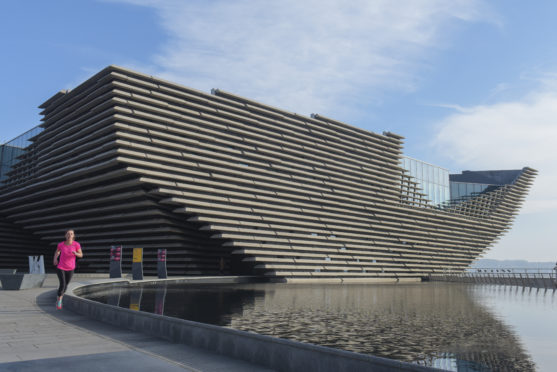
The UK arts and culture sector is worth £10.8 billion and contributes more to the economy than agriculture, according to a report.
More than 360,000 jobs are thought to be supported by the arts, with government coffers benefiting by £2.8 billion in tax.
In a one-year period, the value of the arts and culture as an industry rose by £390 million.
The sector has been hailed as a “thriving industry” which provides the UK with an economic boost of £23 billion when supply chains and employee spending are taken into account.
Despite this success, 75% of arts organisations have suffered cuts and volunteers are increasingly propping up the sector.
Book publishing was the largest contributor to a sector which added more to the UK economy than agriculture and hunting, according to a report for Arts Council England.
The report charts the economic impact of arts and culture from 2009 to 2016, and shows a year-on-year rise in money made by the sector, and value generated for the wider economy.
Arts and culture took in £17 billion, and added £10.8 billion to the UK economy in 2016 – more than computer, textile and electronics manufacturing in the same year.
Sir Nicholas Serota, chairman of Arts Council England, said “Latest figures show arts and culture is a thriving industry delivering huge benefits for our economy.
“Public investment in the arts is fuelling local regeneration across the country, pushing skills and talent to the commercial sector, and driving the world-class reputation of our creative industries.”
Part of the sector’s success came from families spending around £73 a week on cultural activities in 2016, with weekly spending rising every year from 2009.
Figures broadly show that the older and wealthier the household, the more likely they were to indulge in the arts.
Book publishing is the largest contributor to the sector, accounting for around a third of turnover and value added to the economy. Performing arts accounts for a third of employment in the sector.
In 2016 there were 137,000 workers directly employed in arts and culture, with 363,000 jobs supported by the sector overall, according to the report by the Centre For Economics and Business Research (CEBR).
However, the report claims that 75% of arts organisations surveyed have suffered public funding cuts, with more than half of these saying they could not compensate for the loss.
The main impact of cuts has been added pressure on money for staff, with frozen wages and payroll reductions.
The report states: “Volunteers play a key role in the industry. Against a backdrop of public funding cuts, organisations in the arts and culture industry are increasingly becoming reliant on volunteers to sustain their operations.”
Despite pressures, the productivity of arts and culture workers is higher than the national average, according to the report.
Turnover from the arts and culture sector has risen every year from 2009 to 2016, from £11 billion to almost £17 billion.
Gross value added by arts and culture has risen from £5.7 billion to £8.6 billion in 2016, with an estimated £2.2 billion added to this total by government and non-profits in 2016.
From 2015 to 2016, the gross value added by arts and culture rose from £10.3 billion to £10.7 billion.
In the same year, according to ONS figures, agriculture and hunting added £10 billion, textiles £7 billion, computer manufacture £8.1 billion, and electronics manufacture £5.9 billion.

Enjoy the convenience of having The Sunday Post delivered as a digital ePaper straight to your smartphone, tablet or computer.
Subscribe for only £5.49 a month and enjoy all the benefits of the printed paper as a digital replica.
Subscribe